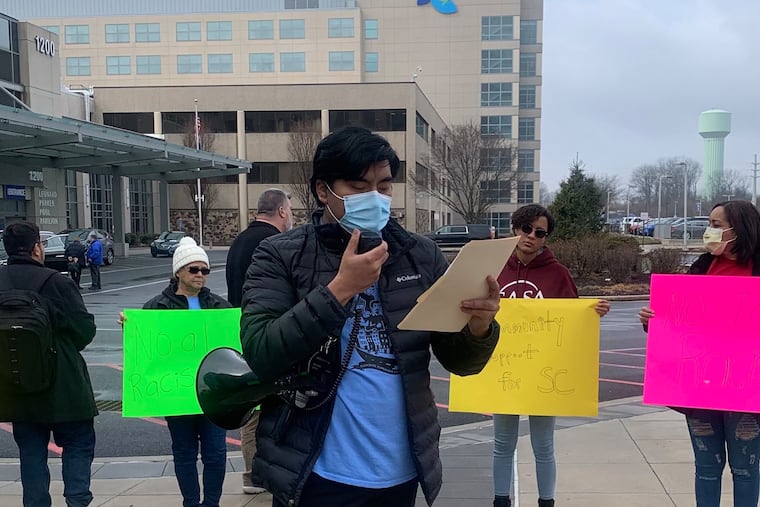Immigration activists believe they’ve stopped the ‘medical deportation’ of a comatose patient in Allentown
The 46-year-old woman experienced complications from surgery after suffering a brain aneurysm in late December

Pennsylvania immigration activists say they believe they’ve stopped an Allentown hospital from carrying out the forced “medical deportation” of an undocumented, comatose patient.
Advocate organizations are having “productive conversations” with the hospital health system, and expect that the woman, known only as S.C., will not be flown out of the United States to the Dominican Republic.
“While this is not the end of this case, as we hope to see her placed in an appropriate care facility near her family, we are confident we will be successful in achieving that goal,” the Free Migration Project said in a statement on Friday.
A spokesperson said the Lehigh Valley Health Network had no comment beyond its earlier statement. Previously the network said it could not comment on the woman’s case because of privacy laws, but that it “works tirelessly with patients and their families to ensure they receive appropriate care.”
Members of the Pennsylvania Immigration and Citizenship Coalition, Make the Road Pennsylvania, CASA, and the Free Migration Project have twice demonstrated outside of Lehigh Valley Hospital-Cedar Crest, and say they’ll do so again if necessary.
The 46-year-old woman experienced complications from surgery after suffering a brain aneurysm in late December, and has been in a coma since.
Her supporters say the mother of two could die if sent out of the country. Her husband, Junior Rivas, 52, said he has refused hospital-administration requests to consent to her removal.
Several times in the last three years, Pennsylvania hospitals have sought to carry out so-called medical deportations, where extremely ill, undocumented patients are sent to their homelands in what lawyers say are health-system attempts to shed the expense of ongoing care.
Hospitals charter private flights to transport people, and the journey often ends in the aggravation of their illness or death, advocates said. Often patients are sent to countries that cannot provide the level of care that’s needed.
These private deportations are unregulated and ungoverned, most occurring “in the shadows,” concluded a joint study by Seton Hall University School of Law’s Center for Social Justice and the Health Justice Program at New York Lawyers for the Public Interest. Even the term “medical deportation” is a misnomer, since the power of deportation rests with the federal government, not with hospitals or flight companies.
Yet the practice goes on quietly, often without the consent of patients and families.
The situation in Allentown began on Dec. 29, when severe headaches took S.C. to a different hospital in the health network. She was then taken by ambulance to Cedar Crest. The next day she underwent surgery for an aneurysm that was obstructing her optic nerve, suffering a stroke that left her in critical condition, according to her husband.
Doctors placed her in an induced coma to promote healing. Three weeks later, coma-inducing medicine was withdrawn, but she did not wake up. Since then she has been bedridden and requires high-level care to survive.
Her husband said hospital doctors have worked tirelessly to treat his wife, while the administration pushed him to agree to her removal.
The Free Migration Project, a Philadelphia-based advocacy group, said it has begun drafting legislation for Philadelphia City Council that would provide patients and families with clear consent information. That proposal also would require hospitals to disclose data around deportations. Similar legislation is being prepared to cover all of Pennsylvania, the group said.
“We hope that this family’s harrowing experience can be a learning opportunity to everyone involved,” the Free Migration Project said. “Requiring long-term care should not be a risk for deportation. Our health-care systems must continue to explore options that include the uninsured and undocumented members of our community.”